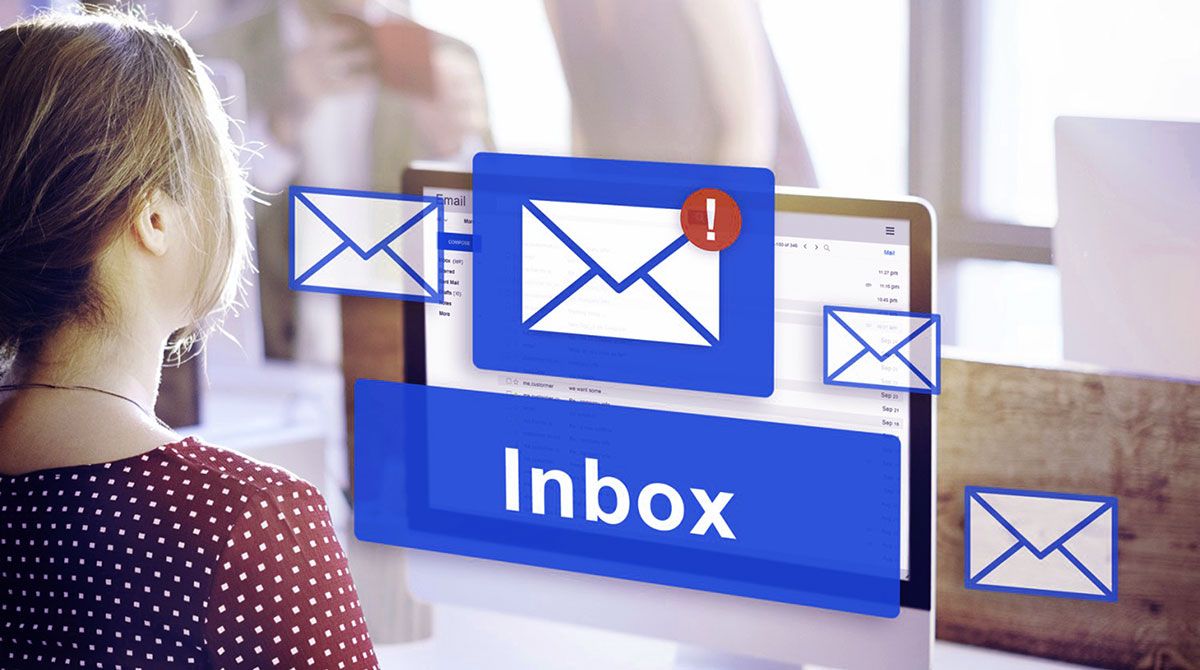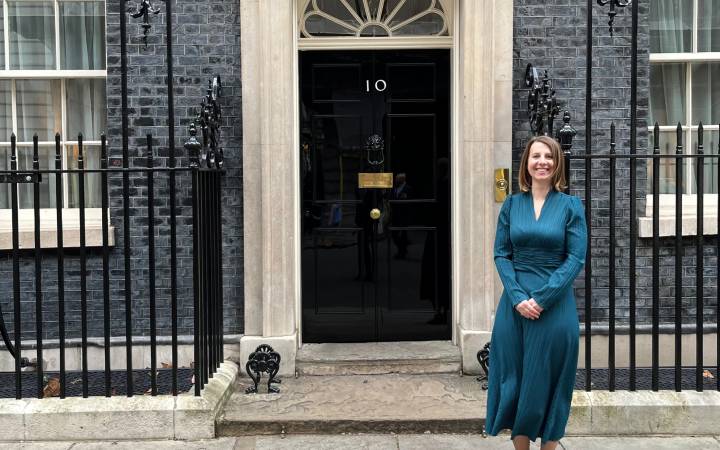New Kingston Business School-led research finds email practices of diligent workers make them unhappy and less effective
Posted Wednesday 6 September 2017
 New research by Kingston University's Dr Emma Russell found suprising insights into the way conscientious people manage emails at work.
New research by Kingston University's Dr Emma Russell found suprising insights into the way conscientious people manage emails at work.
When your latest email pops up on your smartphone or computer screen, how do you react?
Head of Kingston Business School's Well-being at Work Research Group Dr Emma Russell, alongside researchers from the University of Surrey, has been looking at how certain personality traits influence the way people manage their email in the workplace.
With a focus on conscientious people – hard-working and goal-oriented individuals – Dr Russell, who is a senior lecturer in occupational psychology at the University, alongside Stephen Woods and Adrian Banks from the University of Surrey, scrutinised how people's strategies for managing email impacted on their well-being and accomplishments at work. "Email has become embedded into working life and we all have our own way of handling it," Dr Russell explained. "How we respond depends upon our other work tasks and email culture, but is also influenced by our personalities and who we are."
The team had expected that conscientious people would be disposed to resist clicking on incoming email when working on other tasks, Dr Russell said, as they were characteristically committed to staying focused. "We also hypothesised that this would impact negatively on how they feel," she added. "This is because although they are keen to stay on task, they are also often eager to be responsive to other people – so ignoring emails makes them feel guilty about not helping their colleagues."
 Dr Emma Russell heads up the Well-being at Work Research Group at Kingston Business School.The research team's findings were compiled from the results of an experience sampling diary study – this is a quantitative research method where participants rate their behaviours, activities or experiences repeatedly during a certain time period. In this case, 54 individuals rated their email responses over the course of half a working day, amounting to 376 total email being reported. The study confirmed that people who scored higher in terms of conscientiousness were more likely to take longer to respond to an email dropping into their inbox and that this had a negative effect on their well-being.
Dr Emma Russell heads up the Well-being at Work Research Group at Kingston Business School.The research team's findings were compiled from the results of an experience sampling diary study – this is a quantitative research method where participants rate their behaviours, activities or experiences repeatedly during a certain time period. In this case, 54 individuals rated their email responses over the course of half a working day, amounting to 376 total email being reported. The study confirmed that people who scored higher in terms of conscientiousness were more likely to take longer to respond to an email dropping into their inbox and that this had a negative effect on their well-being.
Other results, however, were more surprising. "We thought conscientious people, who ignored email interruptions, would at least feel they were getting their work done more effectively – so we predicted they would report higher task goal achievement, even if their sense of well-being was reduced," Dr Russell explained.
Interestingly, though, findings from the project refuted this assumption, she said, with participants reporting that avoiding email notifications didn't have any positive effect on perceived task achievement. "We began to wonder why people were adopting this policy of ignoring new emails if it not only made them experience anxiety, but didn't allow them to feel better equipped to achieve their work objectives," Dr Russell added.
The report found that conscientious people were faced with an ‘activation-resistance quandary'. The incoming email activates their desire to check an email to address new work priorities and respond to their colleagues, but they must resist this if they want to stay on track with current tasks and avoid being distracted. This affects how they feel but can also mean that conscientious people don't feel they are achieving their work tasks well.
"We don't often stand back and look at how we work and assess whether this is assisting us to reach our goals," Dr Russell said. "We have to wonder – are our email strategies helping us feel good about ourselves? Are they causing us stress? Is there anything we can do differently?"
Dr Russell said the research team had concluded that those who had higher levels of conscientiousness could review the way they handle their emails. If they found that delaying dealing with email had a negative effect, they should think about switching off email notifications altogether, in order to limit the activation-resistance quandary, checking in occasionally, when convenient to them. The paper ‘Examining conscientiousness as a key resource in resisting email interruptions: implications for volatile resources and goal achievement' by Russell, Emma; Woods, Stephen A and Banks, Adrian P (2017) is now available in the Journal of Occupational and Organizational Psychology, September edition, Volume 90, ISSN (print) 0963-1798.
Dr Russell has been studying email behaviour in the workplace and its impact on public well-being for more than 12 years and said future research would be looking at helpful email strategies for people with other personality types. "In addition we will shortly be publishing research on this topic which has been carried out with leading British arbitration service ACAS," she confirmed.
- Find out more about Kingston Business School's Well-being at Work Research Group.
Contact us
General enquiries:
Journalists only:
- Communications team
Tel: +44 (0)20 8417 3034
Email us



